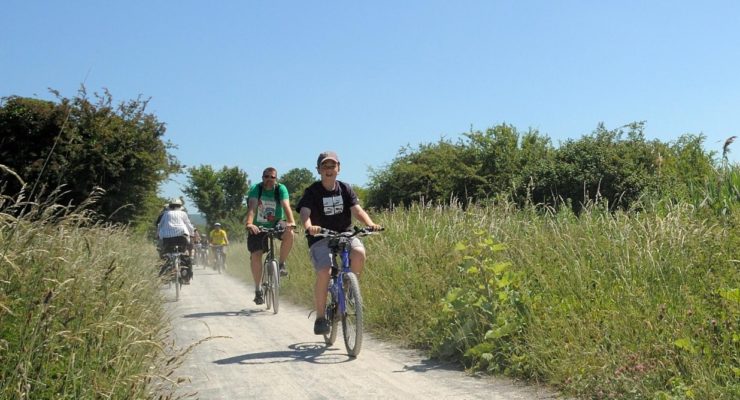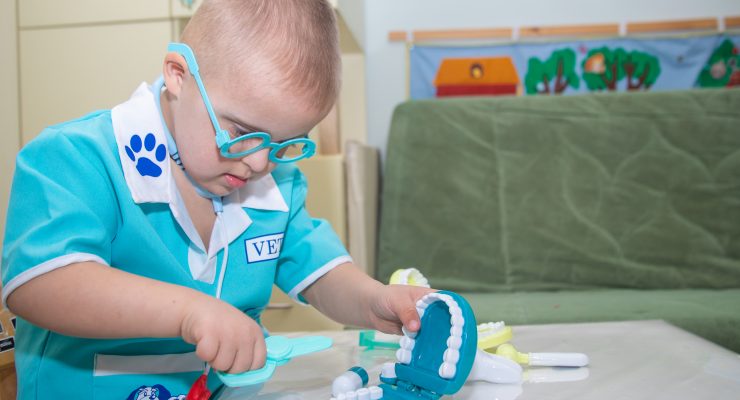Take care of Children’s Teeth
This page explains the best advice for keeping children’s teeth healthy. The key points are:
-
- Brush teeth twice a day.
- Use dental floss or interdental brushes.
- Reduce how often they eat sugar.
- Reduce sucking habits from 1 years old,
Alongside this, it is important for these things to be normalised through play and by your child seeing you take care of your oral health. Our page “Take Care of Your Teeth” will give you all the guidance you need for looking after your own mouth.
Tooth Brushing
From the moment baby’s first tooth appears, it is important to brush teeth for two minutes, twice a day: before bed and at one other point in the day. Encourage your child to spit the toothpaste out at the end, but do not rinse it away as it continues to work for hours afterwards. For more toothbrushing advice, see our page “Toothbrushing”.
Getting between the teeth
Use dental floss or interdental brushes to get between the teeth, especially the tight gaps where food gets stuck. This will stop plaque building up there which will prevent bad breath and decay from developing. The videos that follow show how to use dental floss and interdental brushes effectively.
Mouthwash is not recommended as part of the toothbrushing routine- using it before can cause damage to teeth when you then brush, and using it after brushing will wash away the stronger fluoride of the toothpaste.
Toothpicks are not recommended as they can cause damage to gums.
Bottle, Dummies and Thumb Sucking
While breastfeeding is found to be best for babies’ developing teeth, we understand that not everybody can make it work for them. If you find bottle feeding is the best option for you and your baby, there are steps you can take to reduce the impact it will have on their growing mouth. When using a bottle two things happen in a child’s mouth – the drink pools next to their teeth attracting bacteria to the area, and the lips create a seal over the teeth, so the mouth can’t wash sugars and germs away. The following steps will help you to reduce the problems caused by this.
1) Only put milk or water in the bottle, as other drinks contain hidden sugars. This step will limit the amount of sugar teeth come into contact with.
2) Keep bottles to set times of the day to avoid “grazing” throughout the day. By 6 months old, start introducing free flowing cups, or sippy cups. These steps will reduce the time teeth are behind the seal of the lips.
3) Aim to finish with bottles by baby’s first birthday.
As well as stopping the mouth from cleaning the teeth properly, sucking on bottles, dummies and thumbs can also lead to jaws developing in an upwards curve, affecting eating, talking and smiling. Aim to reduce the use of dummies and thumb sucking beyond the age of one and end completely by the age of four. For thumb sucking this can be harder, health visitors and school nurses might be able to help you and your child reach your goal.
Reduce sugar intake
Bacteria in the mouth feast on sugar, and when they feast on sugar they release acid. This acid is what attacks teeth and causes disease. It takes up to an hour for the mouth to recover from the acid caused by eating and drinking. It is therefore important to limit the number of times teeth are exposed to sugar, by having sugary foods and drinks just at mealtimes. Grazing or sipping on sugary foods and drinks throughout the day increases the number of times teeth come in to contact with sugar – instead, try having the sugary treat at a mealtime, that way your mouth is already working to wash food away.
Sugary foods include dried fruit, biscuits, cakes and puddings, as well as drinks such as squash and fizzy pop.
If you like to snack between meals, try some snacks that are safe for teeth. These include;
fruit (which contain natural sugars but much better for teeth than sugar added to sweets etc)
natural yoghurt (avoid flavoured yoghurts, but add your own flavour by topping with fruit, berries or honey)
raw vegetables (great at increasing saliva production, reducing acid in the mouth, getting blood to your gums and bring a boost of fibre and vitamins)
cheese (great for teeth – source of calcium and protein and low in sugar – also neutralise acid – not low in fat though so keep to small amounts)
uncoated nuts (full of essential oils and fatty acids and low in sugar – only need a small amount for a snack between meals).
Water and milk are tooth-friendly drinks to have between meals. If you’ve got into the habit of offering squash drinks, these can be diluted more each day until it is mostly water, reducing the amount of sugar sitting on teeth.
As well as limiting the number of times children eat sugar, reducing the amount of sugar also helps to keep teeth (and bodies) healthy. The Sugar Smart Guide, is a quick guide to help reduce sugar intake, and the Food Scanner App, can help to make healthy swaps to reduce sugar in a diet.
Dentists
Guidance says to see a dentist every six months. If you are not registered with an NHS dentist, you can find your nearest one accepting new patients by following this link. Private dentists are also available and tend to have a shorter waiting lists for appointments, but will cost more money for check ups and treatments.
NHS dental services are free for under 18s. It is ideal for a child to visit at dentist every six months and get a coating of fluoride varnish to help strengthen teeth. Regular visits will help the experience feel normal and reduce any anxiety about going. If you as an adult experience anxiety around the dentist, please ask another adult to accompany your child so that this phobia doesn’t get passed along.
Dentists may give advice about lifestyle changes or recommend courses of treatment. It is important that this advice is taken seriously as it can reduce future problems, pain and cost.
If your child develops any pain or problems with their teeth, it is important that you seek dental help as soon as possible because most problems with teeth cannot self-heal.
In a dental emergency or out of hours you can call 111- be sure to make it clear that a child is in pain. You can also visit the NHS website for advice about getting an emergency appointment.
Follow this link to get Dental Help from NHS 111
Free, impartial advice on any dental or oral health issue is available from the Dental Helpline: 01788 539780 (local UK call rate).
Emergency dentists treat serious bleeding and swelling in the mouth. Sometimes you need to book a call back with them first. They can usually prescribe painkillers for severe pain. The Dental Emergency Helpline for the area is 0300 303 4165.
For more information about NHS cost bands for dental care and who can access free dental care on the NHS, visit the NHS website.



